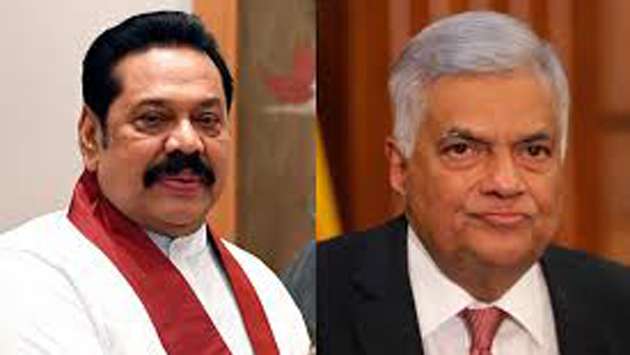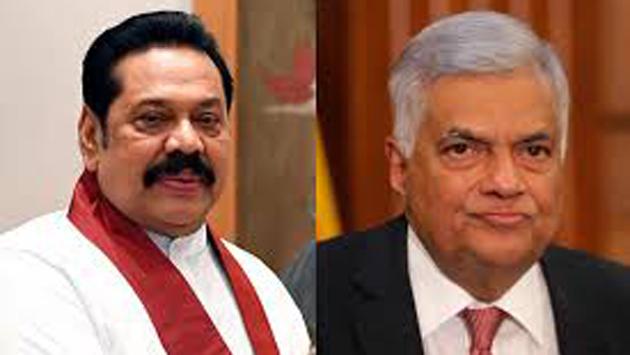Reply To:
Name - Reply Comment

 Colombo, July 24 (Daily Mirror) - Ahead of the announcement of the Presidential election, the United National Party (UNP) led by President Ranil Wickremesinghe is engaged in dealing with a section of the Sri Lanka Podujana Peramuna (SLPP), which has now openly pledged its support to his candidacy.
Colombo, July 24 (Daily Mirror) - Ahead of the announcement of the Presidential election, the United National Party (UNP) led by President Ranil Wickremesinghe is engaged in dealing with a section of the Sri Lanka Podujana Peramuna (SLPP), which has now openly pledged its support to his candidacy.
More than 50 MPs who were elected on the SLPP ticket have now sided with the President in his attempt to secure the vote base of the SLPP for his Presidential bid.
Urban Development and Housing Minister Prasanna Ranatunga openly announced that the SLPP should support Wickremesinghe. He remained sided with the President right throughout despite the SLPP having somewhat different views. However, his open announcement has now created a stir within the party with the MPs close to the party hierarchy led by former President Mahinda Rajapaksa, party’s founder Basil Rajapaksa and MP Namal Rajapaksa starting to slander Ranatunga and other members of the party who have decided to throw their weight behind the President at the Presidential election.
Most of the Cabinet Ministers and State Ministers who are SLPPers are fully behind the President. The Rajapaksa group, however, weighs in the situation.
In the aftermath of the Aragalaya that ousted former President Gotabaya Rajapaksa, the SLPP backed Wickremesinghe to become the President in a secret parliamentary ballot. It was a marriage of convenience, though. Mahinda Rajapaksa played a key role in prevailing upon the party to back the election of Wickremesinghe as the President. Obviously, he considered it the best choice from his party’s point of view for political safety warranted by the then violent situation.
It became a stroke of luck for SLPP MPs such as Kanchana Wijesekara, Shehan Semasinghe and Kanaka Herath. Wijesekara turned out to be the Power and Energy Minister, and it was something unimaginable for him as a young parliamentarian otherwise. Semasinghe became the State Minister of Finance and participated in key discussions with the International Monetary Fund (IMF) and the World Bank on debt restructuring and economic recovery matters. It is a blessing for him as a young politician to gain experience for success in the future. It is natural for them to support the President as a result.
However, the Rajapaksa faction, despite being part of the government, remains disillusioned with the President on and off. On the one hand, the Rajapaksas-led SLPP could not influence the President politically in decision making all the time. On the other hand, Basil Rajapaksa requested the President to deal directly with the party leadership instead of having political understanding with the breakaway groups of the party such as the ones led by MP Nimal Lanza or individual MPs such as Prasanna Ranatunga.
These developments soured political relations between the President and the SLPP, but the circumstances always prevailed upon them to be together. The current election is bound to be an uphill task for the SLPP under the leadership of the Rajapaksas. Yet, it tries to maintain or carve out its own political identity which is different to that of the President. The SLPP is opposed to the restructuring of some of the state institutions whereas the UNP is for such a policy. Also, it fears whether it will not be able to retain its vote base in the event of the President securing presidency for another five years.
The SLPP that suffered a humiliating setback after Aragalaya is now at pains to rebuild its identity. Historically, the UNP and the SLPP have been poles apart in terms of political identity.
Anything is possible in politics. So, they got together. Such a unity is possible once again in view of the Presidential election after bickering.
For the President, it is also a tricky affair for the accommodation of the SLPP under the leadership of the Rajapaksas. If he is identified further with the Rajapaksas, he will stand the risk of losing minority voters, particularly Muslims. However, it is a question whether the Rajapaksas vote base can outnumber the minority vote base. In that sense, the Rajapaksas are like a hot potato for the President.
Prime Minister Dinesh Gunawardena who is the leader of Mahajana Eksath Peramuna (MEP) is now involved in unifying all the nationalist forces in support of the President.